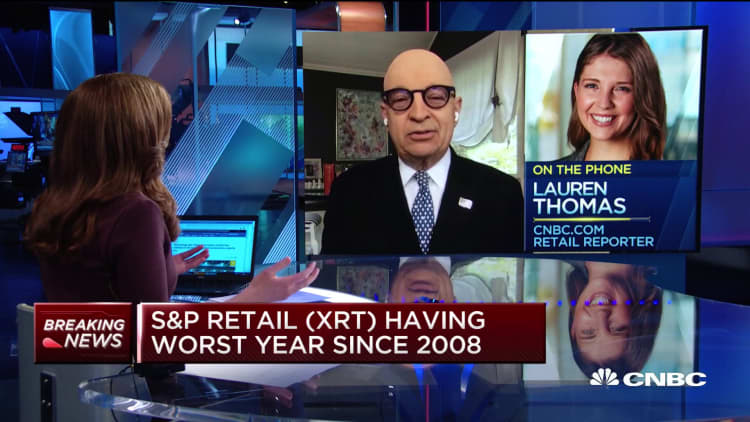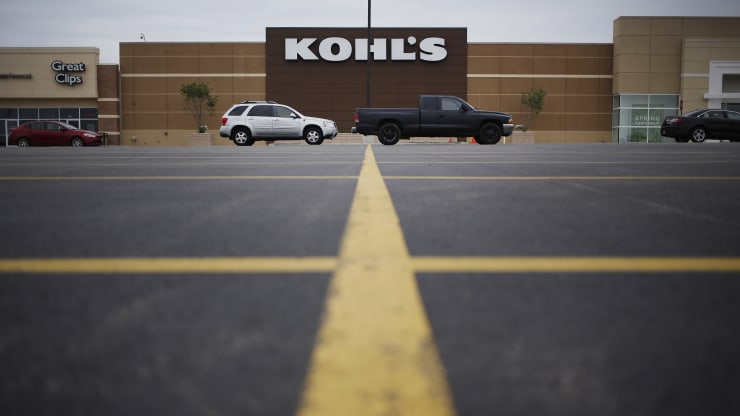Lauren Thomas@LAURENTHOMAS
Source: www.cnbc.com, April 2020
- The number of orders placed online and picked up at stores by customers surged 208% between April 1 and April 20 compared with a year ago, according to Adobe Analytics.
- Online sales in the U.S. jumped 49% from March 12 to April 11, compared with a baseline from March 1 to March 11.
- The increases come as many retail stores across the country remain shut to try to curb the spread of Covid-19.
The coronavirus pandemic is making curbside pickup much more valuable to customers and more beneficial to retailers, as many stores remain shut to try to curb the spread of Covid-19.
The number of orders placed online and picked up at bricks-and-mortar stores by customers surged 208% between April 1 and April 20 compared with a year ago, according to data pulled from Adobe Analytics, which measures the web transactions of 80 of the top 100 internet retailers in the U.S.
Meantime, online sales in the U.S. jumped 49% from March 12 to April 11, compared with a baseline from March 1 to March 11, Adobe said. Retailers did not start widely closing stores due to the pandemic until mid-March.
Companies like Target have been touting buy online, pick-up at store options to customers who feel more comfortable ordering online during the crisis, but who don’t want to wait for packages to arrive by mail.
Other retailers such as Kohl’s, Best Buy, Bed Bath & Beyond and Dick’s Sporting Goods have been able to offer this pickup option at certain locations, even as their stores sit closed because they have been deemed nonessential.
The curbside pickup trend is likely here to stay, according to Naveen Jaggi, the president of commercial real estate services firm JLL’s Retail Advisory team. Shoppers will likely be more hesitant to get back to stores, since they’ve adjusted to being home for so long, he told CNBC Monday during a Facebook Live event.
Meantime, on Monday, two major industry trade groups — the Retail Industry Leaders Association and the National Retail Federation — released their broad-based blueprint for how retailers, in a phased-in approach, should be thinking about getting back to business.
Phase 1 is to allow for e-commerce operations to ramp back up, with contact-free curbside pickup and in-home delivery. In phase 2, stores will reopen to the public with social distancing protocols and slashed capacity. Phase 3 is to “establish protection,” and then lift all remaining restrictions, the two groups said.
As of this past Friday in Texas, after shops were shut for several weeks, Gov. Greg Abbott allowed nonessential retail stores to begin offering curbside pickup again, calling the model “retail to go.”
Galleria Dallas has a number of tenants, including Nordstrom and Louis Vuitton, already participating. The Dallas shopping mall itself has been opened back up only to retail employees.
Customers for Galleria Dallas can place an order online and make an appointment, with each specific retailer, for pickup. The mall is using the hotel there to serve as a single drive-up location. The retail staff will place items in the trunk or the backseat of a vehicle, as shoppers are not allowed to leave their cars.
“I think our retail stores are going to become fulfillment centers,” Galleria Dallas’ general manager, Angie Freed, said in an interview.
“Retailers are trying to figure it out,” she said. “Some of them are more advanced, more savvy and have better systems in place to handle it. Others are scrambling.”
Later Monday, Texas said it would lift other statewide coronavirus restrictions as soon as this week. More than 25,292 people in Texas were diagnosed with Covid-19, and the virus has killed at least 661 people there, according to data compiled by Johns Hopkins University. Nationally, the coronavirus has infected more than 972,900, and killed at least 55,118, according to Hopkins.


